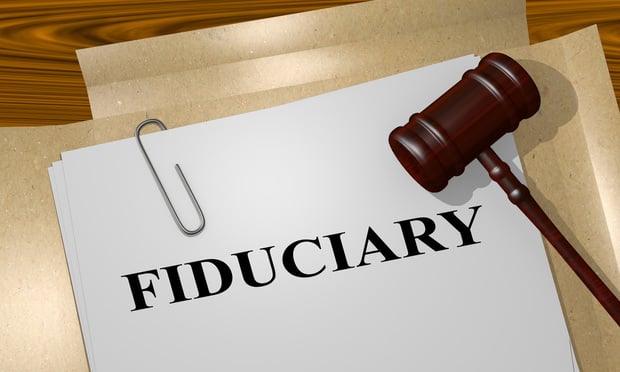
The Department of Labor sent its controversial fiduciary rule to the Office of Management and Budget on Saturday—a move that likely indicates that a final rule may be issued sooner rather than later.
The OMB review of the rule often is the last step before a final rule is issued. That review could take days, or it could take several months. However, a final rule could be issued as early as May, with an effective date of late in the year or on Jan. 1, 2025, according to ERISA lawyers.
Recommended For You
The text of the final rule will not be available until it is released by DOL or when it is published in the Federal Register.
This marks the fourth attempt by the DOL to establish a fiduciary standard for rollover transactions involving retirement accounts. The rule could hold plan sponsors responsible for guaranteeing that retiring workers receive appropriate fiduciary investment advice long after they retire. Employers who do not meet the fiduciary standards could find themselves in trouble with the DOL. As written, the rule also states that any financial professional who exercises discretionary authority over retirement assets would be classified as a fiduciary.
Comments on the proposal were due on Jan. 2. The department received more than 20,000 comments on the proposal.
The Biden Administration has lumped poor retirement advice that costs consumers into the category of "junk fees." The administration has mounted a high-profile campaign against fees ranging from bank overdraft payments to the processing fees that consumers pay for concert tickets.
"Financial advisors should put savers' best interests first and not sell them lower- returning products in order to maximize their own fees," Lael Brainard, director of the White House National Economic Council, said in October, when the proposed rule was released. "When a retirement saver pays for trusted advice that is actually not in their best interest and comes at a hidden cost to their lifetime savings, that's a junk fee."
When the rule was sent to OMB for its final review, Wayne Chopus, president/CEO of the Insured Retirement Institute said he was disappointed that the Biden Administration chose to move ahead on the plan.
"IRI is dismayed that the Administration has decided to move forward with its fiduciary investment advice rule despite the evidence presented to DOL about the significant, unnecessary harm this rule will cause to retirement savers and concerns raised by members of Congress from both sides of the aisle," he said.
Related: Is DOL's new fiduciary rule an 'overreach'? House subcommittee holds hearing
Another critic said that the administration was rushing with the rule to the detriment of effective policymaking.
"The fact that the Department rushed the comment period and now is rushing a final rule makes clear the process was never designed to obtain and thoughtfully consider input from stakeholders or conduct robust cost-benefit analysis," Kenneth Bentsen Jr., president/CEO of the Securities Industry and Financial Markets Association.
© Touchpoint Markets, All Rights Reserved. Request academic re-use from www.copyright.com. All other uses, submit a request to [email protected]. For more inforrmation visit Asset & Logo Licensing.






